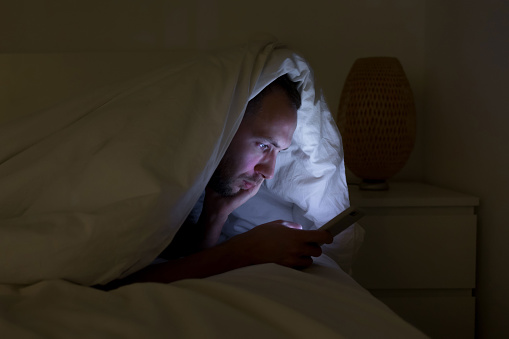
By Shayla Dablemont, RISQ Consulting Individual and Family Benefits Consultant
My husband and I got married in July in the middle of COVID-19. This created newlywed comfort along with the push to support our local restaurants. The result? Double the weight gain. I like to call it the quarantine 15, but it was more like the quarantine 25.
When enough was enough, I started working out and eating better, but the weight sure goes on faster than it comes off. My newfound love for fitness came along with an escalation to my already prominent struggle with my sleep wake cycle. My maternal grandmother has insomnia and my paternal grandmother had narcolepsy. For me, this means I have some weird combination of each. I am wide-awake at night, no matter how eventful the day and exhausted ready for a nap during the day.
I would wake up early to complete my 30-minute exercise before work. The natural energy would last me until approximately 3pm when it was time for an afternoon pick-me-up. Ah sweet nectar from the Gods, COFFEE!! After my shift, I spend the evening binging my TV shows and nodding off, so tired. When it is finally an acceptable time to go to sleep…BOOM WIDE AWAKE.
My mind won’t shut off and I developed a strange tendency to online shop at 3 in the morning. I have always heard the concept that a good night’s sleep and overall health and wellness go hand in hand, so during one of my sleepless nights I decided to help my pocket book and dig deeper into the correlation instead of browse Amazon.
According to the National Sleep Foundation, adults need between 7 and 9 hours of sleep each night. Short sleep duration increases the likelihood of obesity by 55%
Why is this?
Sleep deprivation actually lessens the activity in the frontal lobe, which correlates with decision-making and self-control. If you are having a craving, with a lack of sleep, it much harder to resist. There is also a correlation between lack of sleep and an increase in cravings. For example, you are craving a big bowl of ice cream and your brain is making it hard to resist. That is when excuses of why it’s okay to eat the big bowl of ice cream start creeping in.
Poor sleep can also decrease your metabolism. Your metabolism burns a certain number of calories when you are resting. This is your resting metabolic rate.
Poor sleep can cause muscle loss. Muscle burns more calories at rest than fat, so when muscle is lost your resting metabolic rate decreases.
Poor sleep can cause insulin resistance. Insulin moves sugar from the bloodstream to the cells where it is used for energy. When your cells are insulin resistant, the sugar can’t get there and remains in the bloodstream and your body creates more insulin to compensate. The additional insulin makes you hungry and tells your body to store more calories in fat.
What you can do to help get a good night’s sleep: (I am still practicing)
- Avoid dark during the day. Open the windows turn on the lights. This helps keep your circadian rhythm (natural sleep wake cycle) in harmony.
- Reduce Blue light exposure up to 2 hours before bed. Blue light comes from devices like smartphones, tablets, TVs and computers. Blue light tricks your brain into thinking it is daytime, which reduces melatonin.
- Stop caffeine intake around 3 PM. Caffeine can have effects in your body for up to 8 hours after consumption
- Go to bed and wake up at the same time every day. This will help reset your circadian rhythm.
- Do not exercise before bed. Exercising releases endorphins, which can make you wide-awake and alert.
- Keep your room cool and dark. The sweet spot for night temperature is between 60 and 67 degrees. Use a blackout shade or curtain to block light from entering the room.
Since implementing the above suggestions, (and a little melatonin) I have found myself sleeping better and waking with more energy. I have completely cut caffeine from my diet, I no longer make large purchases in the middle of the night and I am happy to say my clothes are fitting much better!
Sources:
https://www.sleepfoundation.org/physical-health/weight-loss-and-sleep




